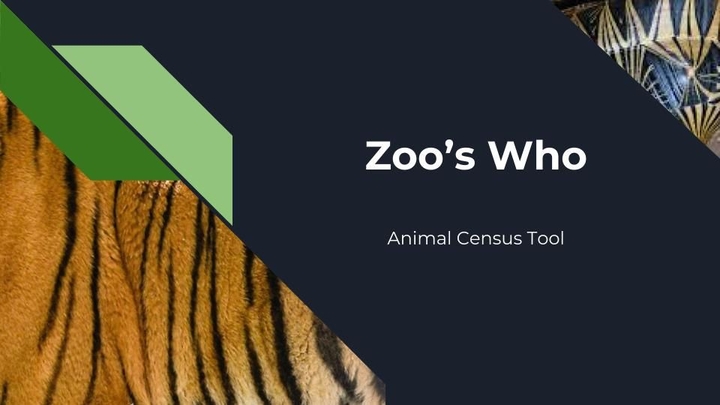Zoo's Who: Animal Census Tool
The Problem
There are an unknown number of captive exotic animals such as primates (including chimpanzees and lorises) and big cats (including tigers, African lions and leopards) located around the world. While some of these animals are cared for at qualified facilities and bred according to approved guidelines, many more are kept in private hands, and are bred, sold, traded, used for juvenile handling displays, and even marketed as pets. Laws governing ownership of these animals vary widely, and the often-unreported exchange of exotic animals among owners makes tracking and determining the fate of individual animals extremely difficult. Generally these animals will change hands so many times that their entire “life history” (e.g. birth date, medical records, previous owners, locations of enclosures, housed with other exotic species, births, diet, etc.) is difficult or impossible to know. Because they are not uniformly tracked, so there is no way to guarantee that these animals are not entering international trade.
Our Proposal
We aim to create and populate a centralized register of endangered animals in captivity -- including zoos, sanctuaries, menageries, and all forms of private ownership. Currently, reliable data only exists for zoo populations. For our model, we focused on tigers, because each individual has unique markings, and facial and pattern recognition software has been successfully used with this species. The database includes photographs, life history, and other documentation. Events can be added to an individual’s record over time. Administrators (e.g. animal care/conservation professionals, law enforcement) can login to securely access the data to search for individuals, track population trends, investigate suspicious transfers, etc.
We Assume that...
Constraints to Overcome
The biggest constraint is engaging users. Due to lax regulations in many areas, private owners and facilities are not required to register their exotic animals--even dangerous species such as tigers. Change in regulations are needed to compel owners to complete an annual census. In the meantime, we would try to engage citizens, including people who work with captive animals, to voluntarily provide information.

